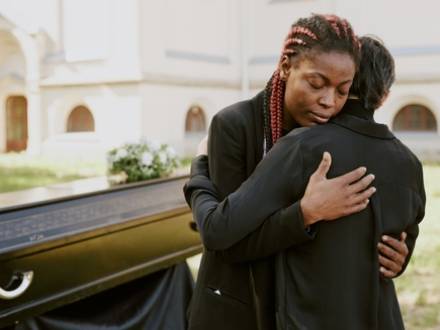Wheaton Office |
St. Charles Office |
Sycamore Office
 630-665-7300
630-665-7300
When a Spouse Dies During a Divorce, What Happens?
 Divorce can be a long, difficult, emotional road that is full of uncertainty for many. For some couples, divorce is just as full of disagreements and arguments as their marriage was, and the only thing they want is to have it over and done. For others, divorce is just incredibly sad. After all, this is the person they were once in love with and expected to spend the rest of their life with.
Divorce can be a long, difficult, emotional road that is full of uncertainty for many. For some couples, divorce is just as full of disagreements and arguments as their marriage was, and the only thing they want is to have it over and done. For others, divorce is just incredibly sad. After all, this is the person they were once in love with and expected to spend the rest of their life with.
Regardless of whether the divorce is contentious, heart-breaking, or one of the few that is relatively friendly, the death of one spouse during the divorce can bring an entirely new set of emotions. Everything changes when your spouse dies during the divorce. Even something as simple as dealing with expressions of condolence from others can leave you filled with uncertainty. How do you grieve someone you were in the middle of divorcing, especially if the two of you were not even on good terms?
What are the legalities of the situation? While your divorce is no longer necessary, does this mean that all of the marital assets are now yours, even if a division of those assets has been negotiated? Are you in charge of funeral and burial arrangements? What if your spouse was ordered to pay you spousal support or child support? If you find yourself in such a situation, it can be extremely beneficial to speak to a knowledgeable St. Charles, IL family law attorney.
What Are the Legal Aspects of the Death of a Spouse During a Divorce?
There is no way around it – when a spouse dies during a divorce, an already difficult matter takes on a whole new level of complexity. The surviving spouse must now navigate the state’s Trust and Estate laws to obtain his or her share of the estate and is usually not entitled to immediately take possession of the assets that were subject to division during the divorce negotiations.
If the deceased spouse had a will, trust, or other estate documents, these must be considered a part of the process. It would be impossible to address every potential situation that could arise from the death of a spouse involved in a divorce, but some of those situations could include:
-
If the surviving spouse is not on good terms with the deceased spouse’s parents or other family members, there may be disagreements regarding funeral and burial arrangements or issues with the deceased spouse’s estate.
-
If the deceased spouse had another spouse and children prior to this current marriage, those children may have a claim on the estate, especially if the deceased spouse was paying child support.
-
If there is little in the way of an estate, there are likely to be fewer issues, while a large estate could bring every family member of the deceased into the fray.
-
Any debts that the deceased spouse had that were to be awarded strictly to him or her in the divorce now belong to the surviving spouse.
What Are the Emotional Aspects of the Death of a Spouse During a Divorce?
As difficult as the legal aspects are likely to be, the emotional ones can be just as difficult. Despite the surviving spouse’s desire to end the marriage, it is normal to feel grief regarding the death. If the surviving spouse had significant anger and resentment toward the deceased spouse at the time of the divorce and the divorce negotiations were contentious, he or she may feel an array of emotions, including guilt.
Given the situation, friends, family, and co-workers may be unsure how to express their condolences. In some situations, an unexpected death may actually heal some previously damaged relationships with the deceased spouse’s family – although it could also have the opposite effect. Given the situation, it is especially important that you let your divorce attorney help you navigate this uncharted territory.
Contact a Kane County, IL Divorce Lawyer
If your spouse dies during the divorce process, your St. Charles, IL divorce lawyer from Mirabella, Kincaid, Frederick & Mirabella, LLC can guide you through the necessary steps while also recommending an estate lawyer. For your convenience, MKFM Law services clients at their offices in Kane County, DuPage County, and DeKalb County. Call 630-665-7300 to schedule your initial attorney meeting.


 Read More
Read More





